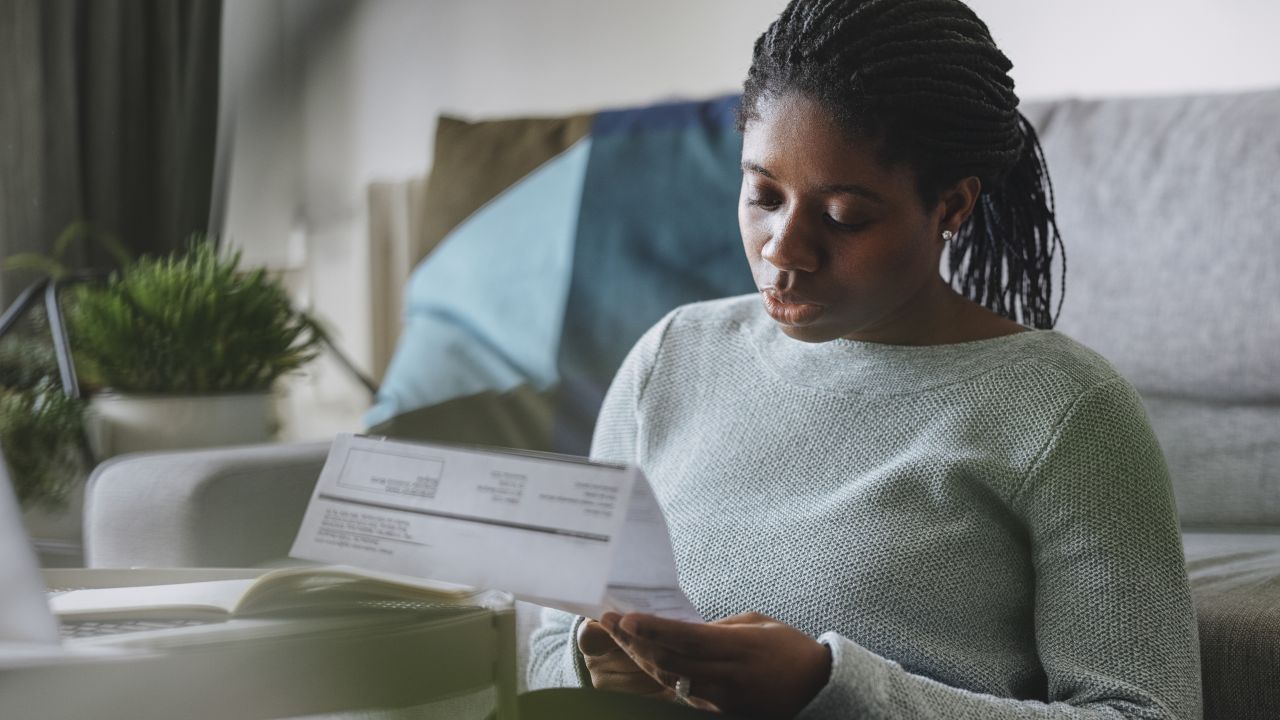
The cost of living is at its highest level in a decade. Combined with the energy crisis, our energy bills have taken a sharp, unsustainable increase. We’ve collated 50 of the best energy-saving tips to help you save money on gas and electricity and make your home more energy efficient.
We’ve put together energy-saving tips that you can act on now while we press the government to do more to address the energy and cost of living crises.
Whether you rent, live in social housing, are a student or homeowner, there are many things you can do to trim your bills. From low or no cost ways to keep warm and save electricity, to ideas that can cost from £100s up to £1,000s if you can afford it.
See what changes you can make to make your home more energy efficient.
How to save money with a gas boiler
If you have a gas boiler, there are a few steps you can take to make sure it’s running well, which will help you save money in the long term. It’ll mean you won’t have to shell out on additional running costs, and you’ll avoid expensive repairs.
For all boilers:
1. Keep an eye on the boiler pressure.
Your boiler pressure should be between 1 and 2 bars to keep it working efficiently.
2. Get a boiler check
Make sure your boiler is working well by getting an annual boiler check.
3. Set a timer
Make sure you’re not using gas for heating you don’t need by setting the timer on your boiler, so it only switches on when you’re at home.
For combi-boilers only:
4. Turn down the flow temperature
Changing the flow temperature won’t change the temperature of your radiators or water from your taps, but turning it down to 60°C lets the boiler work more efficiently when it’s in condensing mode. Note: Don’t set the flow temperature below 60°C, to avoid legionella bacterial growth, which can cause legionnaires’ disease.
5. Turn off the pre-heat function
Some boilers have what’s called a “hot water pre-heat” function. This keeps a small amount of hot water ready inside the boiler, which can be sent to the taps quicker. Switching it off means you have to wait a little until the water heats up, but saves money.
Make your radiators more effective
Maintaining the health of your radiators and using them efficiently will help you save money.
6. Stop heating rooms that aren’t in use
Turn down the temperature on radiator valves. Rooms you don’t use as often or sit in for long periods of time, such as spare bedrooms or bathrooms, could have a lower setting on the radiator valve.
7. Maximise heat from your radiators
Remove dust from radiators and don’t obstruct them with furniture to ensure they heat the room effectively.
8. Bleed your radiators periodically
This can be done about twice a year or if you feel cold spots on the radiator.
Save money on your water bill
You could save money on the water that’s heated to clean the dishes in the sink or dishwasher, the laundry in the washing machine, as well as yourself in the bath or shower.
9. Ditch baths
If you usually take a regular bath, try taking a shower instead as they use less hot water.
10. Spend less time in the shower
Try taking a shorter shower by taking minutes off your usual shower time. Set a timer and see how you do – you might be surprised!
11. Fit a water-saving shower head
You can get a similar shower experience but use less hot water. You may be able to get a free water-saving shower head from your water company, depending on where you live.
12. Fill your dishwasher before you run it
If you have a dishwasher, try to fill it up before you run a cycle and run it less often. You can also select the eco setting if you have the option.
13. Wash dishes in one go
If you wash dishes by hand, save the dishes and wash them in one go. Don’t let the hot tap run continuously, like when you’re lathering or rinsing dishes.
14. Full loads in the washing machine
Wash full loads in the washing machine, select 30°C, and the eco setting if your appliance has one.
15. Consider getting a water meter
This could save money on your water bills on top of saving on your energy bills. Find out more at Money Saving Expert.
Make your kitchen energy efficient
Cooking food in ovens can contribute significantly to overall energy bills. Think about when and what you’re cooking, and how long for, to make efficient use of your kitchen appliances.
16. Maximise oven usage
If you’re using an oven, try cooking multiple items in the same session – this can help with meal planning for the week too.
17. Be mindful of time
Don’t leave the oven on for longer than necessary.
18. Consider other appliances
If you already have access to other appliances, use a slow cooker, pressure cooker, microwave, or air fryer to heat up or cook food that doesn’t need to be cooked in the oven or on the hob.
19. Don’t boil a full kettle
We often fill up the kettle when having a cup of tea, but only boil enough water for what you need.
20. Maintain appliances
For example, descale kettles to improve their ability to boil water more efficiently.
21. Think about the equipment you’re using
Use the right size pan for what you’re cooking and use lids so food heats up more quickly and save energy.
22. Regularly defrost the freezer
Doing this will avoid your freezer using more energy than necessary. A full freezer maintains an optimal temperature compared to an empty one, as it doesn’t have to work hard to cool the empty space.
23. Don’t overpack the fridge
This will allow cool air to circulate effectively.
24. Check temperatures
Make sure both the fridge and freezer are set to the correct temperature. For the greatest energy saving, set your fridge to 3-5°C and your freezer to -18°C. If your appliances don’t provide degree readings, set to the mid-point.
25. Avoid tumble dryers
If you have one, avoid using the tumble dryer where possible and opt for air drying your laundry instead.
Change your light bulbs and switch off your plugs
Get into the habit of choosing lighting options and practising good habits that will save you money in the long term.
26. Check energy efficiency
When buying a new appliance, check the label to see its energy efficiency or eco rating and consider those with an “A” rating. The cost of running more efficient appliances will be less over their lifespan.
27. Switch off lights
When you leave a room, make sure you switch the light off. Switch off any outdoor lights when they aren’t needed too.
28. Don’t leave appliances on standby or chargers and electronics plugged in when they aren’t in use.
Although it doesn’t make a big difference, it’s another way you can save some money as part of adopting multiple energy-saving tips.
29. Upgrade your light bulbs
Switch to LED light bulbs but choose them carefully. It can cost the average home about £100 to replace all its light bulbs with LED ones, which can save approximately £35 a year. Why not replace light bulbs when needed rather than replacing them all in one go?
Eliminate draughts with easy DIY tips
As well as reducing heat loss, eliminating draughts can help improve thermal comfort – or how warm you feel – reducing the temptation to reach for the thermostat and turn it up a degree or two. These tips are also suitable if you live in a rental home or are working on a budget.
30. Invest in thicker curtains or blinds
The heavier the curtain or blind, generally speaking, the more effective it is at preventing heat exchange between the cold air around the window and the warm air in the rest of the room.
31. Get automatic door closers
These can prevent unwelcome draughts as well as being good for fire safety, privacy and energy conservation. If you’re renting, you might need to ask your landlord to install them or ask permission to install yourself.
32. Make a door snake
Door snakes can be cost-effective draught excluders, and you can even try making one yourself.
33. Make a radiator reflector
Radiator reflectors reduce the energy needed to heat your home. Have a go at making one yourself.
34. Make a chimney balloon
Chimneys suck air out of your home, so a chimney balloon will help prevent warm air from escaping, as well as keeping cold air out. You can try making one yourself, if you don’t have a working fireplace.
35. Buy window seal and film
Easily available to buy locally and online, window seal and film will help lower energy use in your home by providing makeshift insulation.
36. Invest in a door seal and letterbox draught excluder
Readily available at hardware stores, door seals and letterbox draught excluders block draughts and prevents unnecessary air flow around the edges of your door frame or letterbox.
37. Get floorboard seal
Draught-proofing your floorboards can save you up to £40 per room, according to the Energy Saving Trust. Find out more about draught-proofing with the Energy Saving Trust guide.
Thermostats, radiator valves, smart meters and controls
Control the heating levels in your home and the money you’re spending more effectively by installing the following devices.
38. Get a thermostat
Thermostats can save you money on energy bills by helping you control the temperature of your home. Check out Which? magazine’s guide to see what options are out there.
39. Turn down the heat
The World Health Organisation (WHO) advise the recommended indoor temperature at home to be between 18°C and 21°C, depending on your age and health. If your settings are higher than this, try turning the dial down and see how you feel. If your thermostat setting is higher, try turning it down and see how you feel. By turning it down by just one degree, you could save as much as £60 on your energy bill according to U-Switch.
40. Install smart heating controls
Smart heating controls allow you to control your heating remotely from your phone, computer or other internet-powered devices.
41. Thermostatic radiator valves
Thermostatic radiator valves are an easy and inexpensive way to maintain constant temperature in a room. They change the flow of the water in the heating system when the temperature reaches a certain point, preventing the radiators from getting any warmer.
42. Check your smart meter
Smart meters allow you to measure how much gas and electricity you’re using. If you don’t already have one, your energy supplier should supply one soon, as part of the national government programme to replace older energy meters.
Insulation for loft, walls and windows
Insulation can help reduce the amount of heat lost from your home – and helping to keep it cool in the summer too. Find out more about what insulation is and how it can save you money. The different types of insulation include:
43. Loft insulation
Loft insulation is cheap and simple to install, so it’s worth telling your landlord this if you rent. Fit it to a depth of 270 mm. It’ll pay for itself in a year through lower energy bills or 2-3 years if you pay someone else to install it.
44. Cavity wall insulation
Get a professional to install insulation if you have cavity walls, or external cladding if you have solid walls. Internal solid wall insulation can be messy and is best done when decorating. Average costs for a 3-bedroom semi-detached house are £12,000 for external cladding or £8,000 for internal insulation, although much cheaper DIY internal insulation is available. Costs for cavity wall for a semi-detached are typically £1,200.
45. DIY internal wall insulation
You can install internal wall insulation yourself, and it’s both effective and relatively cheap. The insulation either comes as boards or in rolls that you stick to the wall with special adhesive. If you rent, check with your landlord before decorating, and see whether you could benefit from the Affordable Warmth scheme. This solution can be costly and requires a lot of decorating, so if you’re renting, you’ll need your landlord onboard. Find out more about DIY internal wall insulation and other energy-saving tips in our guide to eco heating.
46. Insulate your pipes and hot water cylinder
If you have them, insulating your pipes and water cylinders will mean less heat loss, which in turn means you will be spending less money on heating water. It’ll also mean water will stay hotter for longer.
47. Double or triple glazed windows and doors
Probably one of the most expensive options in our list is to install double or triple glazed windows in your home, with a set of A-rated windows for a semi-detached house typically costing around £7,500.
48. Upgrade your windows or doors
If you are a homeowner and can afford to upgrade your windows, you might also consider replacing external doors with better insulated ones. Find out more about reducing home heat loss from windows and doors with the Energy Saving Trust.
Solar and heat pump eco-heating
Eco heating options reduce carbon emissions, protect our environment, keep us warm and slash our bills in the long term.
49. Install solar panels
If you own your home, you could install solar photovoltaic (PV) panels and harness the power of renewable solar energy to heat your home and water. Solar PV can pay for itself within about 10 years and will last for decades. Use the Energy Saving Trust’s solar energy calculator to estimate energy savings and potential financial payments you may receive by installing solar panels.
50. Upgrading an old, inefficient heating system to a heat pump
Heat pumps extract warm air from outside to heat the water going to your radiators and are more efficient than gas boilers, so could save you money. Find out more about heat pumps – including their pros and cons, and financial support available.


